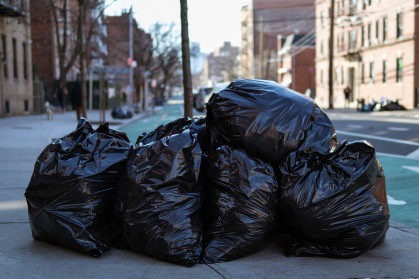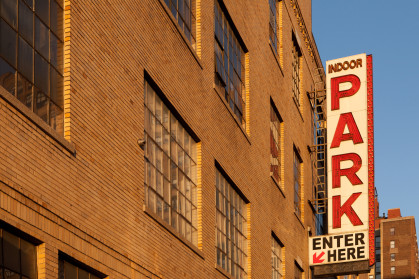3 ways your building can adapt to NYC’s new garbage pickup schedule
- Last year NYC shifted the earliest time trash bags could be put on the curb from 4 p.m. to 8 p.m.
- Buildings are coping by hiring extra staff, paying overtime, or joining an early morning collection program

Later trash pickup times can impact a building's staff schedules and budget.
iStock
New York City trashed its earlier garbage collection times in favor of a later pickup last year, forcing the city’s residential buildings to shift staff schedules, hire more help, or find other ways to adapt to the change.
The City of New York Department of Sanitation declared war on Gotham’s rat population in 2022 and has since issued sweeping changes to its garbage collection program, intended to keep trash off the streets and send the “rats packing.” But those changes have sent residential buildings looking for ways to take out the trash without adding to their bottom lines.
Read on for how boards and property managers have made the new pickup times work for staff and residents.
How have garbage set out times changed anyway?
NYC moved the earliest time trash bags could be placed out on the curb from 4 p.m. to 8 p.m. in April last year, though residents with trash bins could take out the trash as early as 6 p.m.
DSNY also offers an early pickup program for buildings with nine or more residential units. Those large buildings could put their trash out between 4 a.m. and 7 a.m., providing building management opted into the program. Roughly 2,500 buildings had entered into the early pickup plan as of the end of last year.
Adjusting staff schedules, paying overtime
At some large or well-staffed buildings, those changes have had little impact on workers and residents. Later pickup times haven’t impacted Mark Feinberg’s 144-unit co-op near Union Square. He’s the board president and chief financial officer of Argo Real Estate. Nor has it impacted Compass broker Adelaide Polsinelli’s Greenwich Village co-op, which she says employs more than 30 staff members.
But some building managers have had to adjust both employee schedules and buildings’ budgets.
“In some buildings, we've had to obviously adjust schedules,” says Gustavo Rusconi, vice president and director of management at property manager Argo Real Estate. “In some cases, we’ve had to pay overtime.”
The price of the new schedules depends on the building, Rusconi says. Two extra hours of overtime a few times a week can add up to an extra $10,000 per year in union wages, but Rusconi has also seen buildings offer comp time to staffers, or has seen supers handle certain garbage days, bringing down that extra cost.
Any way you slice it, building managers, landlords, and boards need to be communicating with their staff members about the change, Rusconi says.
“The staff are the ones that do the work, so their input is critical to make sure that it works correctly for each building, and it may be different for every building,” Rusconi says.
Opting into early collection
DSNY’s early collection program lets larger buildings put their trash out between 4 a.m. and 7 a.m. And it has been a big help for rental property management firm Rose Associates’ 28,000 apartments across NYC, says Roseann Coraci, managing director.
“Sometimes opting into those early hours seems to be a more efficient use of the team's time, or the employees time,” Coraci says. “It’s really just about understanding the needs of the property.”
Early collection can be particularly helpful for staffers who need to pick-up their kids from school, Coraci says. And a handful of buildings Argo manages have opted into the program as well, Rusconi says.
Working with new staffers or vendors
In some cases, non-union buildings have hired additional staff to help with garbage collection, Rusconi says. Usually that’s someone who comes in an hour a day or just a few times a week to take out the trash.
Meanwhile, Tatiana Peck’s seven-unit condo in Williamsburg, Brooklyn, had to find a different vendor to handle the garbage last year. Her building’s property management company struggled to find staffers who could stay later, and the residents ended up taking out the trash themselves.
Peck’s building decided to become self-managed last year for a handful of other reasons, and the board found a new vendor who could work with the later schedule.
“It was definitely a hard time for the building,” says Peck, board president. “Luckily now, I think we ended up really getting something positive out of it, and getting not just a vendor, but actually someone that feels like a partner for us.”
Sign Up for our Boards & Buildings Newsletter (Coming Soon!)
Thank you for your interest in our newsletter. You have been successfully added to our mailing list and will receive it when it becomes available.























